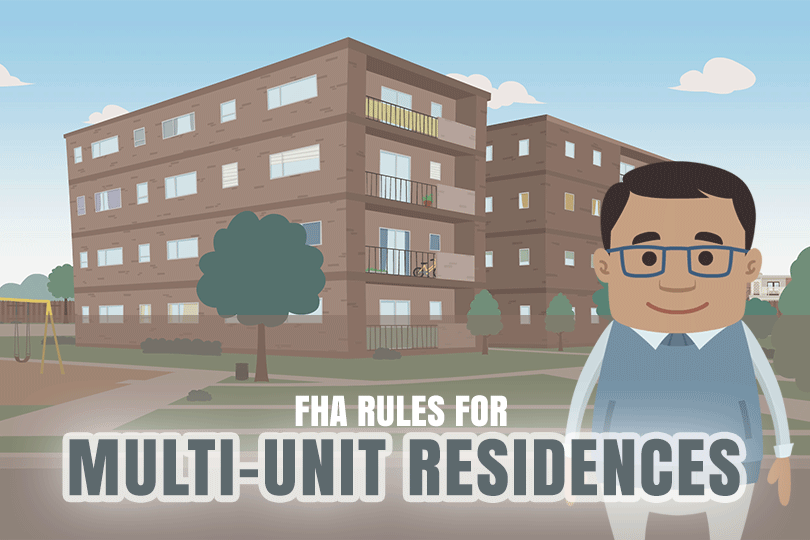FHA Home Loans for Multi-Unit Properties
July 21, 2023
FHA Multi-Unit Property Loans, often referred to as FHA multifamily loans or FHA 2-4 unit loans, are mortgage options specifically designed for individuals who want to purchase multi-unit properties. These loans are insured by the Federal Housing Administration, which means that lenders are more willing to approve applicants with lower credit scores and provide more favorable terms compared to conventional loans.
Qualifying for an FHA Multi-Unit Property Loan
- Credit Score
Although FHA loans are more forgiving of lower credit scores, having a credit score of at least 580 will help you secure a lower down payment (3.5%). However, a score below 580 may still qualify, but with a higher down payment requirement (10%). - Debt-to-Income Ratio
Your debt-to-income ratio should be within acceptable limits, generally around 43%. This means your monthly debt payments (including your mortgage) should not exceed 43% of your monthly income. - Property Requirements
The property you intend to purchase must meet FHA guidelines. It should be in good condition and meet certain safety and habitability standards. - Occupancy
You must occupy it as your primary residence within 60 days of closing the loan and continue to live there for at least one year. - Financial Documentation
Be prepared to provide documentation of your income, employment history, and assets to demonstrate your ability to repay the loan.
------------------------------
RELATED VIDEOS:
Disclosures Give Transparency to Borrowers
Understanding the Purpose of Your Mortgage Down Payment
Putting Money Into Your Escrow Account

FHA Loan Articles
January 15, 2025Buying a condo with an FHA loan is an option some don’t consider initially, but it’s worth adding to your list of potential property types. FHA loans for condo units traditionally require condo projects to be on or added to the FHA-approved list. Still, changes in policy over the years allow borrowers to apply for FHA loans on condo units in projects not on the list on a case-by-case basis.
December 30, 2024When applying for an FHA loan, lenders will consider more than just your credit scores and history. They also look at other factors affecting your risk profile and the interest rate they offer you.
One factor is occupancy type. For FHA loans, this is straightforward because these loans require owner occupancy. Investment properties aren't eligible. While conventional loans may have different rates for primary residences, second homes, and investment properties, this isn't a concern with FHA loans.
December 18, 2024Did holiday spending get the better of you? Are you looking for ways to recover your spending plan as you search for a new home?
The holidays are a whirlwind of festivities, family gatherings, and gift-giving. But amidst the cheer, it's easy to lose track of spending. If you're aiming to buy a home in the near future, those extra expenses can have a bigger impact than you might realize, especially if you're considering an FHA loan.
December 17, 2024The Federal Housing Administration provides mortgage insurance on loans made by FHA-approved lenders, making homeownership more attainable for those who might not qualify for conventional loans.
While financial factors like credit score and debt-to-income ratio are key to loan approval, other non-financial aspects can also cause a denial.
December 11, 2024FHA loans, insured by the Federal Housing Administration, are a popular choice for many homebuyers, especially those who need a lower downpayment or more forgiving credit qualifying requirements. FHA loans are primarily intended for primary residences—homes that borrowers will occupy as their main dwelling.







